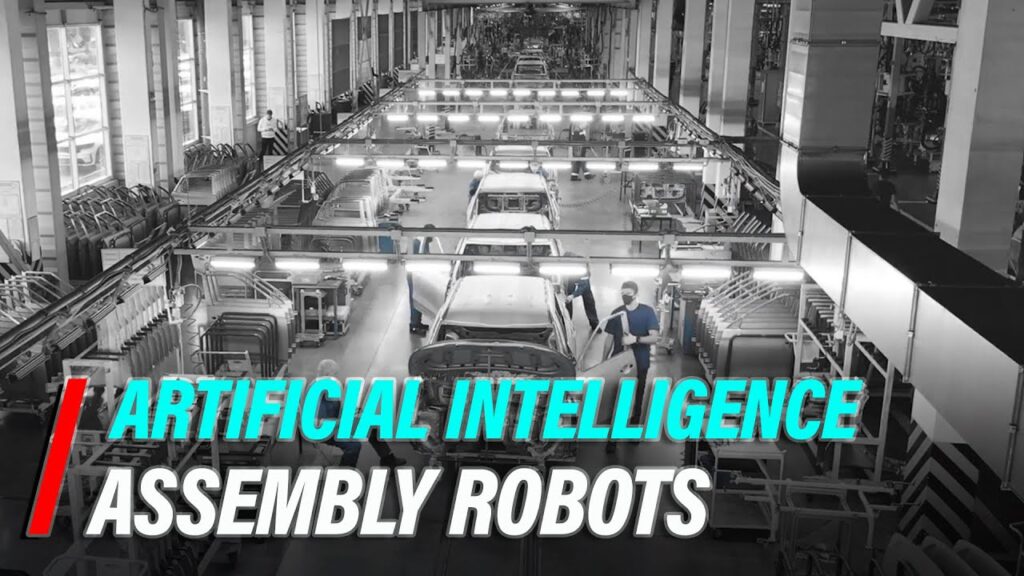Using Industrial Robots in Manufacturing: A Technological Leap Towards Efficiency and Precision
Advancements in technology have revolutionized every industry, and the manufacturing sector is no exception. One key innovation that has transformed industrial manufacturing processes is the integration of industrial robots. These machines have come a long way over the years, and today, they are capable of performing tasks with a level of efficiency and precision that was unimaginable in the past.
Industrial robots have been used in manufacturing for several decades, but their capabilities and functionality have evolved tremendously. These machines are no longer limited to repetitive and mundane tasks; they now possess advanced features and abilities that make them indispensable in modern production lines. From the automotive industry to electronics manufacturing, industrial robots have become an integral part of the manufacturing process.
The interaction between humans and robots in the industrial manufacturing setting has been a topic of discussion in recent years. Critics argue that the widespread implementation of robots may lead to job losses, as these machines can perform tasks with greater speed and accuracy than human workers. However, it is important to note that the role of robots in manufacturing is not to replace humans, but to augment their capabilities and make the overall process more efficient.
Automation has always been a key focus for manufacturers as it helps increase productivity and reduce costs. Industrial robots are a manifestation of this desire for automation, as they can handle tasks that would otherwise be time-consuming and labor-intensive. For instance, in the automotive industry, robots are employed in assembly lines for tasks like welding, painting, and even precision-engineered tasks like attaching intricate electronic components.
Furthermore, advancements in artificial intelligence (AI) have enabled industrial robots to become smarter and more adaptable. These robots can now learn from experience and adjust their actions accordingly, making them capable of handling complex tasks with minimal supervision. This integration of AI technology allows for greater precision and flexibility, ensuring that products are manufactured with consistent quality.
Automakers are at the forefront of employing AI for smarter assembly robots of the future. The automotive industry demands high precision and flawless execution in every stage of production. Industrial robots equipped with AI algorithms can analyze data, identify patterns, and make real-time decisions, which results in improved accuracy and efficiency. This not only reduces the chances of errors but also streamlines the entire production process, leading to significant cost savings.
Industrial robots have also made their mark in the electronics manufacturing industry. With the ever-growing demand for smaller and more intricate electronic devices, the precision requirements in this sector are even higher. Robots equipped with machine vision systems can inspect electronic components for defects, ensuring that only flawless products leave the factory floor. This level of quality assurance would be extremely difficult to achieve manually, further emphasizing the importance of robots in modern manufacturing.
In addition to their technical capabilities, industrial robots also bring certain intangible benefits to the manufacturing industry. For instance, they can be programmed to work tirelessly without breaks, ensuring continuous production and meeting tight deadlines. Moreover, they can work in hazardous environments without endangering human lives, thus enhancing occupational safety.
While there may be concerns about job displacement due to the increasing use of industrial robots, it is important to acknowledge the opportunities they create. As robots take care of repetitive and physically demanding tasks, human workers are freed up to focus on more cognitive and value-added activities. This not only enhances job satisfaction but also allows for upskilling of the workforce to meet the demands of emerging technologies.
In conclusion, the use of industrial robots in manufacturing has come a long way. These machines have transformed the production landscape, enabling faster, more efficient, and more precise manufacturing processes. With advancements in AI technology, industrial robots have become smarter and more adaptable, leading to improved accuracy and flexibility in various industries. It is safe to say that the integration of industrial robots in manufacturing is a technological leap towards a future of enhanced productivity and quality.
Industrial Robot
"Revolutionizing Assembly Processes: The Future of Automakers Embracing AI for Smarter Industrial Robots in Manufacturing"


